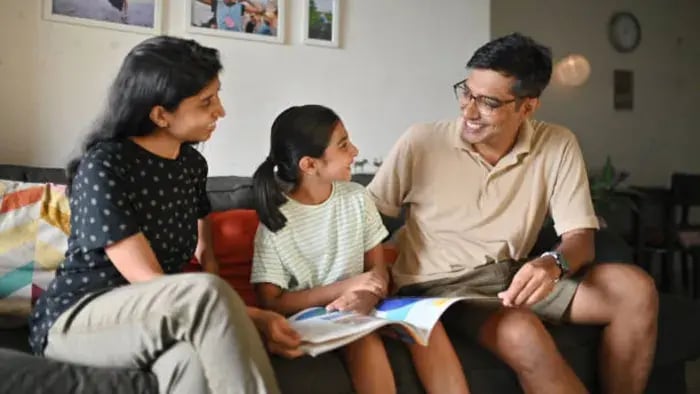- Storytelling Together
- DIY Science Experiments at Home
- Family Cooking
- Nature Walk and Observation
- Board Games That Build Thinking Skills
- Build Something Together
- Create a Family Scrapbook or Journal
- Plant a Mini Garden Together
- Watch Documentaries and Discuss
Introduction
Spending time with your family is one of the best ways to help your child learn, grow, and feel safe. It doesn’t have to be fancy or expensive; simple, hands-on activities can be fun and meaningful. Children gain knowledge without getting stressed when learning is mixed with laughter and play.

Family activities that include reading, building, exploring nature, or trying creative tasks like drawing or science experiments do more than pass the time. They help kids build confidence, communication, and problem-solving skills in a safe and encouraging environment. These shared experiences also build trust and understanding between family members and make everyone feel more connected.
When children see learning as exciting and shared, like a game, an adventure, or a discovery, it becomes a habit they want to continue. These moments also give children a chance to express themselves, ask questions, and feel supported.
By choosing fun and educational activities, you’re not only helping your child develop skills but also making memories that will last a lifetime. A mix of play and learning brings the family closer and makes every day a little more meaningful.
9 Fun and Educational Activities For Families To Do Together

Learning doesn’t have to be boring, and family time doesn’t have to be routine, so why not combine the two and get something fun and meaningful. These activities offer a mix of creativity, exploration, and learning that helps your child grow and bond as a family.
Storytelling Together
Sit down with your kids and build a story together, each person adding one sentence at a time. You’ll be amazed at how each sentence will structure the story in an exciting way. This activity helps to develops language skills, creativity and quick thinking in kids. It also teaches kids to listen, build ideas and stay engaged in a group conversation.
DIY Science Experiments at Home
Simple experiments like vinegar and baking soda volcanoes or making a homemade lava lamp can teach basic science concepts in a fun, visual way. Kids stay curious when they see cause and effect right in front of them, sparking the joy of learning. Doing these together helps your child see science as something fun and a hands-on experience and not just a subject in school.
Family Cooking
Cooking with your child introduces math through measurements, science through changes in ingredients, and life skills that last a lifetime. Ask your child to read the recipe, help with the steps, and give you the ingredients. It also helps to build independence and makes them more interested in healthy eating.
Nature Walk and Observation
Go for a nature walk and have your child observe the plants, birds, insects, and sounds around them. Ask them to carry a notebook to sketch or write in detail about what they see. This will develop curiosity, build observational skills, and help them appreciate nature, all while getting fresh air and exercise.
Board Games That Build Thinking Skills
Choose board games like Scrabble, Monopoly, chess, or memory games that require logic, reading, and number skills. These games teach patience through taking turns and problem-solving in a relaxed environment. They’re a great way to sharpen young minds while having fun together.
Build Something Together
Pick a simple building project like a birdhouse, a cardboard model, or a small DIY kit. This activity encourages hands-on learning, coordination, and planning in kids. When kids work on a common goal, it also teaches teamwork and makes children feel proud of creating something from scratch.
Create a Family Scrapbook or Journal
Ask kids to gather old photos, drawings, ticket stubs, and memories to make a family scrapbook. Let your child decorate the pages, write little captions, or draw around the pictures. This strengthens memory, language skills, and emotional bonding as you discuss shared moments and their meaning.
Plant a Mini Garden Together
Whether it’s a few pots on the balcony or a small patch in the yard, planting together helps children understand how nature works. Let them water the plants, track their growth, or name each plant to create a close bond with them. Gardening teaches kids to be responsible, observant, and caring, plus it’s a calming and therapeutic way to engage with kids.
Watch Documentaries and Discuss
Choose age-appropriate documentaries on animals, space, or inventions and watch together. You can pause in between to talk about what your child finds interesting and learn about their interests and likes. These conversations open up thinking, encourage questions, and help them build a deeper understanding of the world around them.
Conclusion

Each of these activities helps your child learn in small, fun ways, while also giving you quality time together. Whether it’s a creative story, a shared project or a walk in the park, every moment becomes more meaningful when it’s filled with connection, laughter, and a little learning along the way.
Her love for storytelling began with reading her grandfather’s speeches, where Tarishi saw the power of words in creating lasting memories. Combining her passions for food and writing, she has turned her life into a fulfilling path of sharing stories that celebrate flavours and how food brings communities together.
The views expressed are that of the expert alone.
The information provided in this content is for informational purposes only and should not be considered a substitute for professional medical advice, diagnosis, or treatment. Always seek the advice of your physician or another qualified healthcare provider before making any significant changes to your diet, exercise, or medication routines.
















